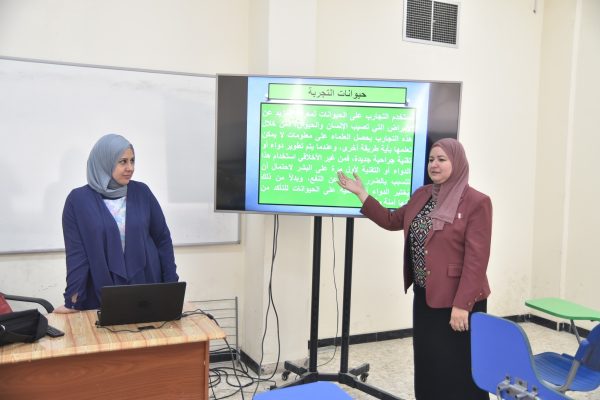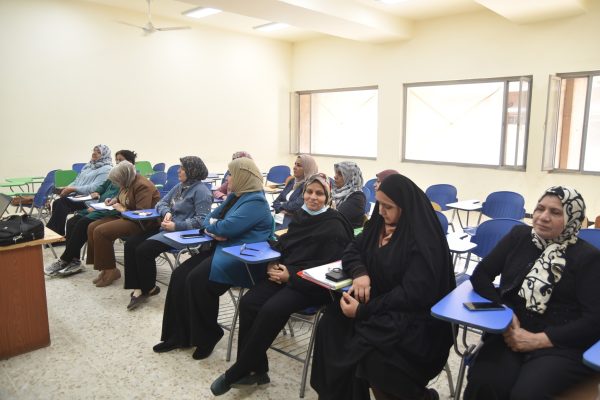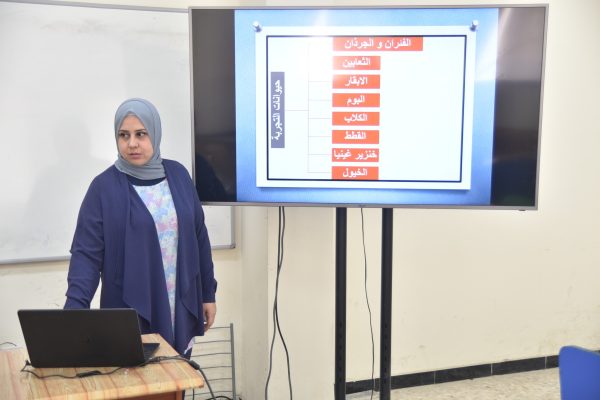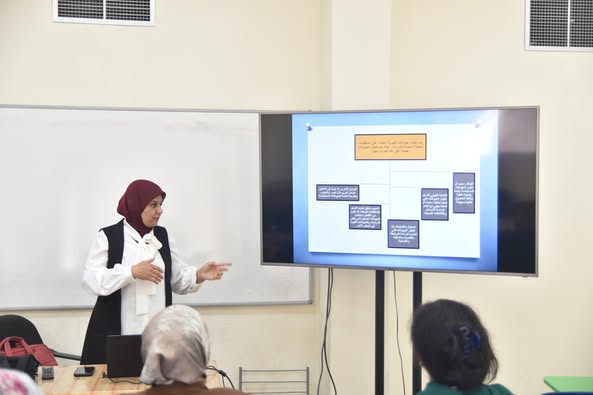Under the patronage of Professor Dr. Sameera Naji Khdim, Dean of the College of Science for Women, the Continuing Education Unit, in cooperation with the Department of Biology , organized a training course titled “Laboratory Animal Dosing.” The course was presented by Dr. Tayba Hashem Mohammed, Dr. Abeer Mohammed Hussein, Ms. Saja Hassan Abdul Amir, Ms. Basma Ali Jassim, and Ms. Noor Naim Jassim in the department’s hall. The course was attended by several faculty members and students from the department.
The course aimed to familiarize participants with the types of laboratory animals, how to select them, and how to determine the dose based on LD50, which is the dose that kills half of the test animals. It also covered methods of animal dosing and the effects of various concentrations of substances on these animals.
The lectures during the course discussed the use of animal experiments to gain further insights into diseases affecting both humans and animals. Through such experiments, scientists acquire information that cannot be obtained otherwise. When developing new drugs or surgical techniques, these must be tested on animals before being used on humans, ensuring their safety.
Regarding the animals used in experiments, such as mice, rats, snakes, cows, owls, and others, the question that may arise is whether animals suffer or are harmed during the experiments. The answer is that most animals experience temporary pain or discomfort. On the other hand, animal experiments are classified into mild, moderate, severe, and those that cause irreversible harm.
It is worth noting that the training course lasts for three days, with practical application to ensure maximum benefit.












